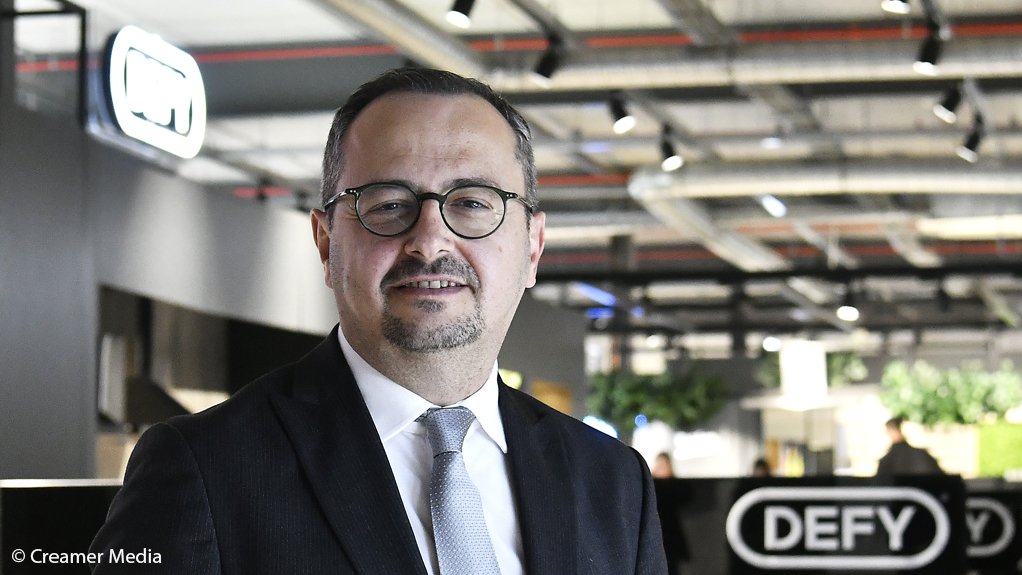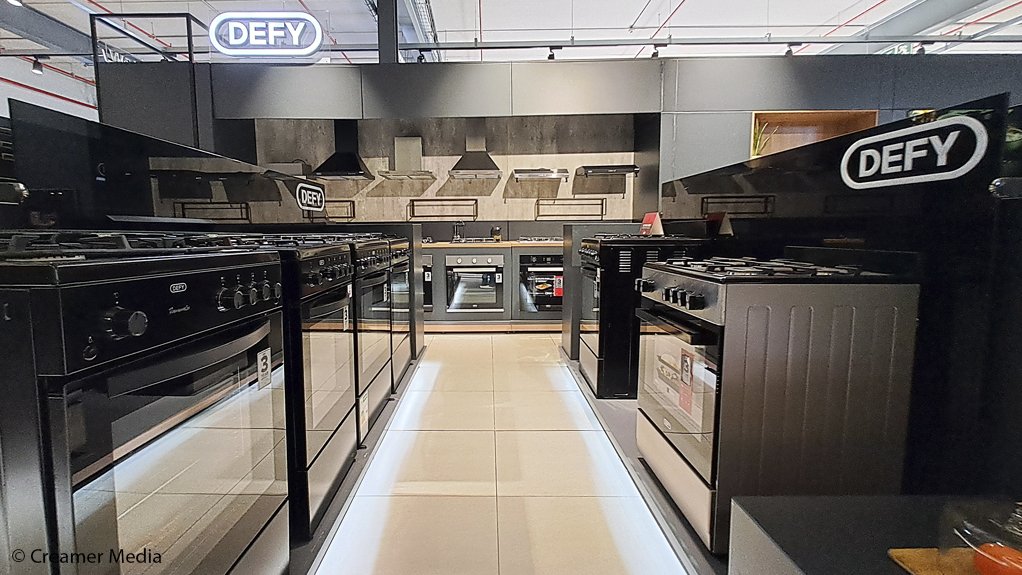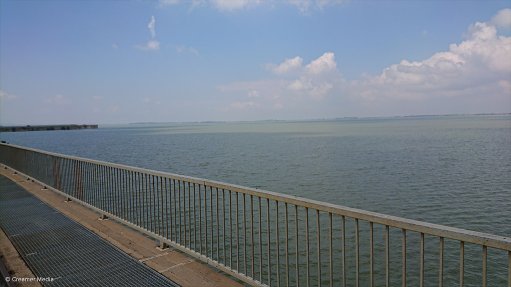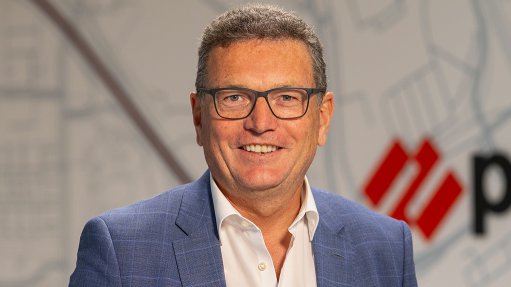Defy to invest an additional R500m in South Africa over next five years



Defy CEO Mustafa Soylu
Photo by Creamer Media's Donna Slater
Photo by Creamer Media's Donna Slater
South African home appliance manufacturer Defy will invest an additional R500-million in its local operations over the next five years, CEO Mustafa Soylu said on July 22.
Speaking at an event at the company’s Midrand showroom that marked Defy’s 120-year anniversary, he said Defy had already invested more than R2.6-billion in its operations in the country over the past 15 years.
“South Africa hasn’t always been the easiest place to do business. It is the reality.
"[But] during all these tough times, we’ve . . . created jobs. We’ve solved problems. And we’ve kept building, even when it would’ve been easier to wait or do nothing.
"This is about deciding what kind of future we are helping to build,” Soylu asserted.
Defy began operations in South Africa in 1905 with the production of cast iron items. The company has since expanded its footprint significantly, now producing more than two-million appliances a year.
Its manufacturing facilities are located in Jacobs, Durban, and eZekheni, near Ladysmith, in KwaZulu-Natal.
According to Soylu, the product categories manufactured in South Africa include cooling appliances, such as refrigerators, side-by-side refrigerators and chest freezers, as well as cooking appliances, such as stoves, ovens and hobs. Top-load washing machines were added to local production in 2019.
Soylu emphasised the value of Defy’s long-standing relationship with South African households, describing it as one built "appliance by appliance, home by home and generation by generation".
Defy became part of the Turkish Arçelik group in 2011, a move Soylu described as a turning point for the business. The partnership with Arçelik, which recently rebranded all of its global operations as Beko, brought global expertise and resources, enabling Defy to accelerate investment and enhance operational capabilities in South Africa.
Arçelik currently employs more than 50 000 people globally and operates more than 40 production facilities, positioning it as the largest home appliance manufacturer in Europe.
“Beko is now the largest European appliance company. With that foundation, Defy has grown into a brand defined not just by market success, but by meaningful progress, in homes, in factories, and in communities,” Soylu said.
The R500-million to be invested over the next five years will support expansion and technological upgrades in local production, particularly in energy efficiency and renewable power.
In 2023, Defy introduced a new solar off-grid appliance range, which was fully updated with the latest models launched in March 2024. This range enables complete independence from the national grid, contrasting with the earlier hybrid systems offered by the company.
At its Jacobs facility, Defy has already installed a 1 MW solar rooftop system, which now supplies 13% of the factory’s electricity. The Jacobs facility is company-owned, which made the installation feasible.
However, Soylu told Engineering News that discussions were ongoing to introduce similar systems at other sites, particularly where properties were leased.
Soylu added that other energy efficiency initiatives were being explored by the company. For example, significant upgrades had been made to energy-intensive systems such as enamelling lines, which required extremely high temperatures.
“We’ve replaced our enamelling systems with highly efficient alternatives, which help us survive and stay competitive,” he said.
Soylu acknowledged that operating in South Africa presented ongoing challenges, particularly around logistics and supply chain constraints. However, he pointed out that being a local manufacturer allowed Defy to maintain better product availability, even when international shipping and ports faced disruption.
He also reiterated that cost-effective production was essential in an industry under global competitive pressure, particularly from Chinese manufacturers.
“If you can’t stay efficient, at some point you become a candidate to disappear from the manufacturing space,” Soylu said.
He said the company was focused on introducing affordable products that meet quality standards. This positioning is particularly relevant in South Africa, where appliance penetration remains low. For instance, fewer than 10% of households own a dishwasher.
Soylu maintained, however, that despite post-pandemic declines in disposable income, appliance prices had also declined in rand terms over the last two years, improving consumer accessibility.
“When we develop new products, affordability is a core part of our design approach,” he said.
Defy has also made numerous voluntary improvements to energy standards. All fridges currently produced by the company meet energy ratings of A or higher. This is a marked improvement from 15 years ago, when E-rated appliances were the market average.
Soylu stated that the company not only upgrades product efficiency but also makes an effort to educate its consumers on long-term value by considering energy consumption in addition to upfront cost.
“If your fridge or washing machine is draining your electricity budget, it’s not serving you, no matter how affordable it seemed at first,” he said.
The company’s South African operations serve as a hub for exports to 35 countries in sub-Saharan Africa. Regional sales and marketing are also managed from South Africa.
Soylu emphasised that African innovation should originate within the continent, rather than being imported. He cited the company’s research and development presence in South Africa, which included a team of 40 engineers and technicians.
“We are listening to our customers and our communities, and the real needs on the ground. We’re asking hard questions about how we can do better for our people, and for future generations,” he said.
Defy plans to expand its product portfolio with smarter, more connected and more sustainable appliances. According to Soylu, growth will continue to be anchored in South Africa, with local job creation and manufacturing remaining central to the company’s strategy.
Article Enquiry
Email Article
Save Article
Feedback
To advertise email advertising@creamermedia.co.za or click here
Press Office
Announcements
What's On
Subscribe to improve your user experience...
Option 1 (equivalent of R125 a month):
Receive a weekly copy of Creamer Media's Engineering News & Mining Weekly magazine
(print copy for those in South Africa and e-magazine for those outside of South Africa)
Receive daily email newsletters
Access to full search results
Access archive of magazine back copies
Access to Projects in Progress
Access to ONE Research Report of your choice in PDF format
Option 2 (equivalent of R375 a month):
All benefits from Option 1
PLUS
Access to Creamer Media's Research Channel Africa for ALL Research Reports, in PDF format, on various industrial and mining sectors
including Electricity; Water; Energy Transition; Hydrogen; Roads, Rail and Ports; Coal; Gold; Platinum; Battery Metals; etc.
Already a subscriber?
Forgotten your password?
Receive weekly copy of Creamer Media's Engineering News & Mining Weekly magazine (print copy for those in South Africa and e-magazine for those outside of South Africa)
➕
Recieve daily email newsletters
➕
Access to full search results
➕
Access archive of magazine back copies
➕
Access to Projects in Progress
➕
Access to ONE Research Report of your choice in PDF format
RESEARCH CHANNEL AFRICA
R4500 (equivalent of R375 a month)
SUBSCRIBEAll benefits from Option 1
➕
Access to Creamer Media's Research Channel Africa for ALL Research Reports on various industrial and mining sectors, in PDF format, including on:
Electricity
➕
Water
➕
Energy Transition
➕
Hydrogen
➕
Roads, Rail and Ports
➕
Coal
➕
Gold
➕
Platinum
➕
Battery Metals
➕
etc.
Receive all benefits from Option 1 or Option 2 delivered to numerous people at your company
➕
Multiple User names and Passwords for simultaneous log-ins
➕
Intranet integration access to all in your organisation



















